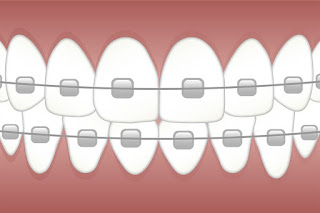Orthodontic Dentistry
What is orthodontics?
Orthodontics is described by the American Association of Orthodontics as the branch of dentistry that specializes in the diagnosis, prevention, and treatment of dental and facial irregularities.
What is an Orthodontist?
An orthodontist is a dentist who has undergone specialized training to diagnose, prevent, and treat dental and facial irregularities in patients. Within the U.S., orthodontics are required to complete a two to three year advanced residency program in orthodontics following the completion of their four-year graduate dental program. Each of these programs must be accredited by the American Dental Associations Commission on Dental Accreditation.
What causes orthodontic problems?
Most orthodontic problems are inherited, including tooth and jaw size which can lead to crowding or spacing of teeth. Underbites, overbites, extra or missing teeth and irregularities of the jaw, teeth and face are also inherited. Thumb sucking/ pacifier use, dental disease, premature loss of primary or permanent teeth can also lead to orthodontic problems.
How early should children get evaluated for orthodontia?
As a general guideline, we recommend children for evaluation when their permanent teeth start erupting. With that being said, every child has different need and the age of orthodontic intervention really depends on the type of problem. So there is really not a specific age that we recommend for orthodontic treatment. We monitor your child's bite and growth of adult teeth during routine dental cleanings and recommend referrals accordingly.
If your child requires treatment early on, starting orthodontic intervention early can make a huge difference in regards to treatment at a later age. We see the best results when some of the work is completed early compared to later when your child's jaw and face are completely developed.
If you feel your child may be ready for Orthodontic treatment, please come and see us to have an evaluation or just mention it at your child's next cleaning.



Comments
Post a Comment